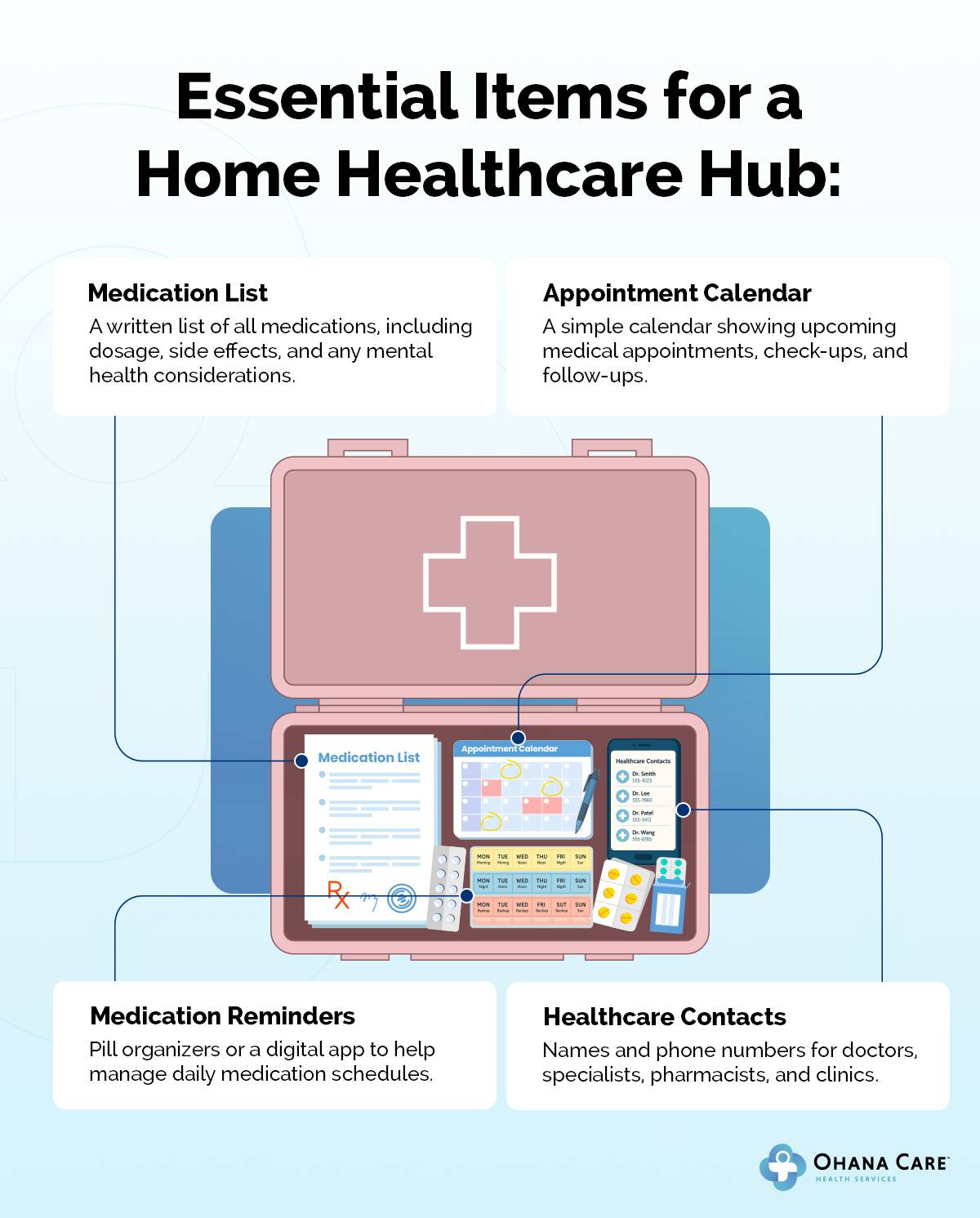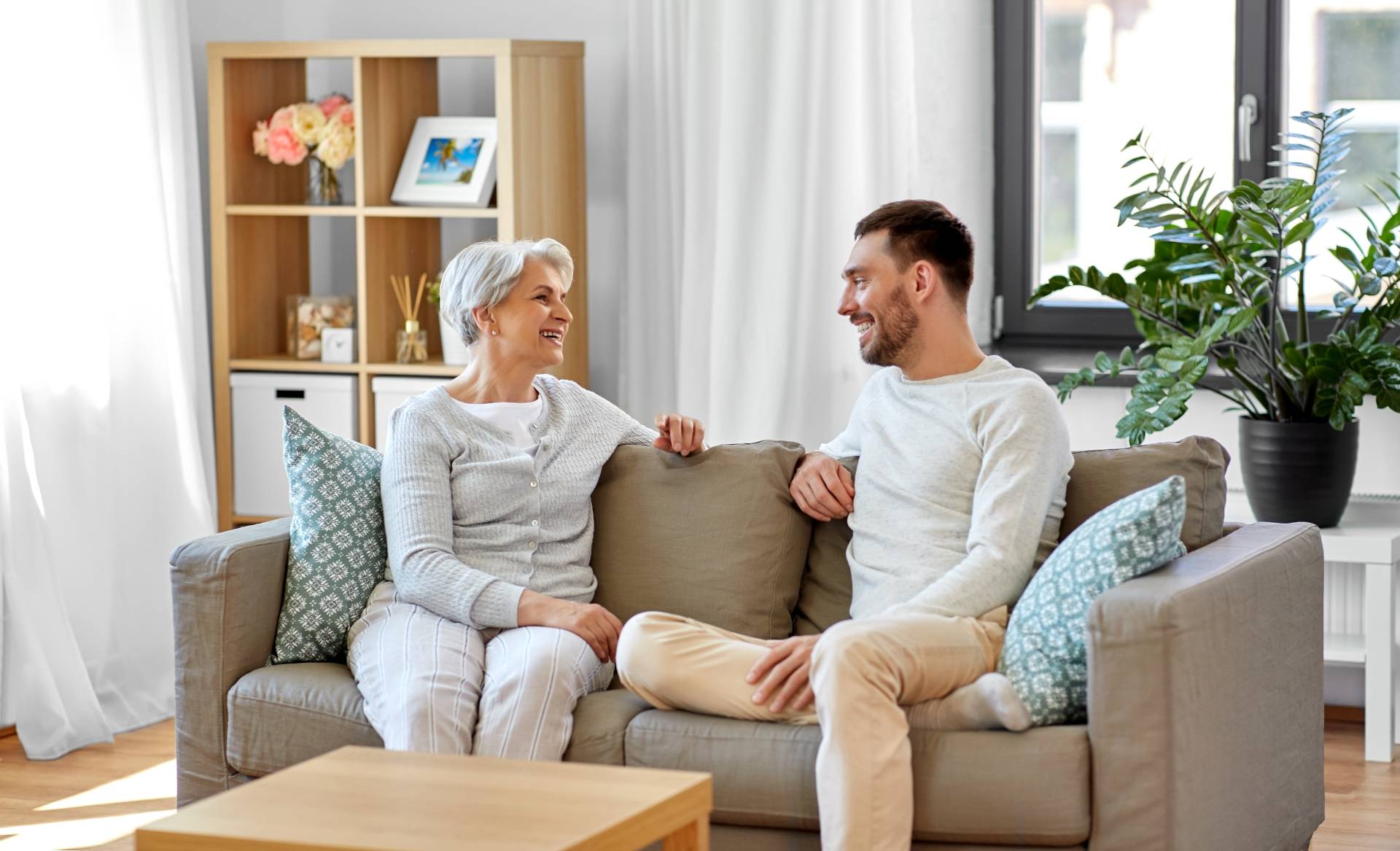Taking care of a parent at home isn’t something most people feel fully prepared for. One day, you’re helping with the occasional task—then suddenly, you’re managing appointments, sorting out medications, and figuring out how to make their home safer.
It’s a lot. And it can feel confusing, emotional, and exhausting all at once.
If you’re in the thick of it, trying to do right by your parent while keeping up with everything else in your life, you’re not alone.
This blog will offer you nine thoughtful tips for how to care for elderly parents at home—tips rooted in empathy, everyday examples, and years of hard-earned wisdom from people who’ve been there. We’ll also share a list of resources that can help lighten your load and ensure your parent receives the home care support they deserve.
9 Tips for Caring for an Elderly Parent in Their Home
1. Respect Their Space First
Their home, like yours, is more than four walls—it’s their independence, history, and safe place. Before you reorganize the pantry or swap out the living room furniture for something “more practical,” pause and ask:
“How would that feel if it were my space?”
Even small changes can stir up emotions—especially for older adults who’ve lived independently for decades. Ask them how they like things arranged, what makes them comfortable, and what routines matter most.
For example, if you replace your mom’s decades-old kettle with a sleek new electric one and suddenly she stops making tea, you might wonder why.
Her answer? “I don’t know how to use that thing.”
Respecting her routines would’ve meant asking first—and remembering that speed and efficiency aren’t always the priority. Familiarity is.
2. Create a Medication and Healthcare Hub
Keeping healthcare information organized is both essential and helpful when you’re caring for someone at home. Having everything in one place makes it easier to stay on top of appointments, medications, and changes in care.

Tip: Make sure you have written consent to speak with providers. It’s a small step that can protect both you and your family members in emergencies.
3. Make Small Comforts a Priority
Does your parent have a favourite chair by the window? A stack of records they always listen to? A snack drawer full of familiar food? These comforts matter.
Older adults may be grieving lost routines, mobility, or even the presence of a close friend who used to visit weekly. Recreating cozy, familiar environments helps ease negative moods and gives them something to look forward to.
Even simple additions, like soft lighting or keeping a blanket within reach, can make a world of difference in your parent’s ability to feel secure.
Other small comforts might include:
- A side table with their favourite snacks and a water bottle
- A photo album or framed pictures of friends, children, or a close friend they miss
- Their favourite scent in a diffuser or lotion (lavender, rose, or lemon are often calming)
- A cozy pair of slippers placed right by their chair or bed
4. Set Up Emergency and Safety Protocols
You don’t need to turn their home into a medical ward, but a few changes can increase safety and peace of mind. This can look like:
- Installing grab bars in bathrooms
- Adding motion-sensor lighting in hallways
- Using a medical alert system or smartwatch with fall detection
- Clearing walkways of clutter
- Hiring professional in-home caregivers for added support
Falls can be devastating for older adults, especially those living with dementia or mobility issues. Taking proactive steps now may help solve future problems before they start!
5. Support, Don’t Take Over
It’s easy to fall into “fix-it” mode when you see a parent struggling, but it’s important to remember they’re still an independent adult.
Avoid saying:
“I’ll just do it.”
Instead, try:
“Would it help if I handled this today?”
It’s a subtle but powerful shift that gives them agency.
Many adult children step into a caregiving role out of love, but without realizing it, they sometimes take over in ways that leave their parents feeling sidelined. The key here is to collaborate, not command.
6. Start with How They’ve Always Done Things
Your parents have built routines that feel familiar and comforting. Before suggesting new tools or routines, understand how they already do things. Ask how they usually handle everyday tasks like cooking, laundry, or cleaning.
Some helpful questions might be:
- “How do you usually prep your meals?”
- “How do you like to fold laundry?”
- “Do you like to clean a little each day or all at once?”
These small routines often help older adults feel grounded and in control. When you start with what they already know and trust, any changes that follow will feel more respectful and less disruptive.
7. Keep Them in the Conversation

Whether you’re hiring help, updating routines, or adjusting the home layout, keep your parent involved.
Even if children or other family members are helping to make decisions, your parent deserves a seat at the table.
Imagine being discussed like you’re not in the room. It’s uncomfortable, and for many aging parents, it can lead to withdrawal, anxiety, or resistance.
Keep them engaged, not sidelined. It’s not only respectful, but it’s essential to helping them accept support in a way that feels good to them.
8. Adjust Gradually, Not All at Once
A full household makeover might feel efficient to you, but it can feel overwhelming to your parent.
Gradual changes build trust, so introduce change slowly.
Try things such as:
- Starting with a few hours of personal care support each week.
- Slowly introducing help during a familiar routine, like meal prep or laundry.
- Using in-home support from Ohana Care to ease into care gradually.
- Letting your parent meet the caregiver casually before formal visits begin.
- Swapping in one new chair at a time, not a full room refresh.
Think of it this way: we’d all rather test the water before jumping into a pool. Let your parent wade into care at their own pace—especially if they’re navigating memory loss, dementia, or anxiety about assistance.
9. Remember That You Don’t Have to Do It Alone
“Over 56% of all unpaid caregivers reported feeling tired because of their caregiving responsibilities, while 44% felt worried or anxious during the past 12 months,” reports Statistics Canada.
You are not alone if you feel tired, resentful, or unsure.
Caregiving is often invisible, but it takes a toll on your emotional and physical health, especially when juggling work, kids, or other family responsibilities.
That’s why support groups, community programs, and in-house support exist to help relieve the burden. Whether it’s help with running errands, short-term respite care, or regular visits from trained personal care professionals, the resources below may be a helpful place to start.
Essential Resources for Caregivers
Canadian Aging Services
- Division of Aging and Seniors – Canada.ca: Provides federal leadership on health issues related to aging and seniors, serving as a central point for information and expertise.
- AGE-WELL: A Canadian network that brings together researchers, older adults, caregivers, and partners to develop innovative technologies and services aimed at enhancing the well-being and independence of aging individuals.
- Active Aging Canada: A national not-for-profit organization committed to promoting healthy aging among older Canadian adults.
- Canadian Coalition for Seniors Mental Health: Works to improve mental health care for older adults in Canada by creating national guidelines, raising awareness, and advocating for better policies and support services.
Online Caregiver Communities
Reddit Communities:
- r/CaregiverSupport: A supportive space where caregivers share experiences, ask questions and offer advice.
- r/Caregivers: A compassionate space where caregivers can seek advice, share personal experiences, recommend helpful products, or simply vent frustrations that might be difficult to express elsewhere.
Facebook Groups:
- Caregivers in Canada Group: This online group offers a platform for caregivers to discuss challenges, share stories, and seek advice.
- AARP Family Caregivers Discussion Group: A digital community designed for individuals to connect, share practical advice, offer support, and discuss family caregiving experiences.
Need Personalized Help at Home? Ohana Care Is Here for You and Your Parent
If you’ve explored the resources above and still need additional in-home support that feels more comprehensive and personalized, Ohana Care is here to help.
At Ohana Care, we provide home care that respects your parent’s routines, honours their preferences, and delivers personal care with compassion and expertise.
Whether you’re just beginning to explore care options or you’ve already taken on the responsibility of providing care, our team is here to support you and your family with a plan that truly fits your needs.
Contact us today to learn how Ohana Care can guide and support you and your parent, one thoughtful step at a time.




